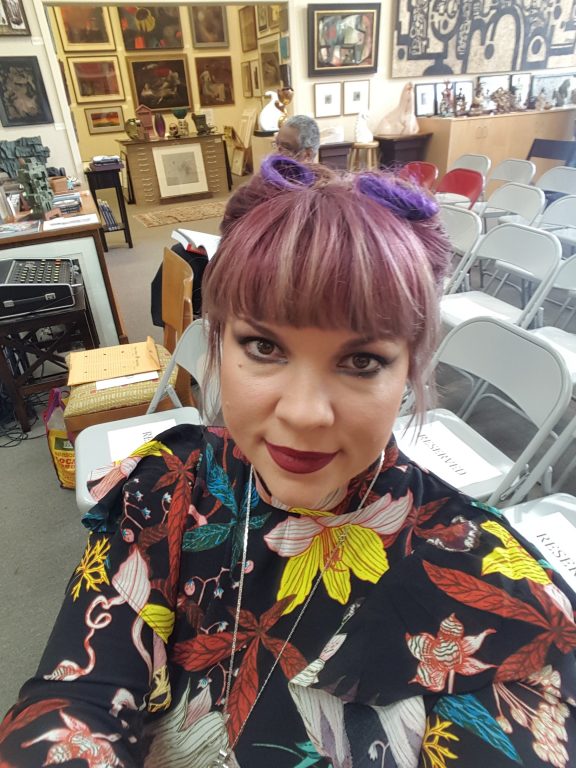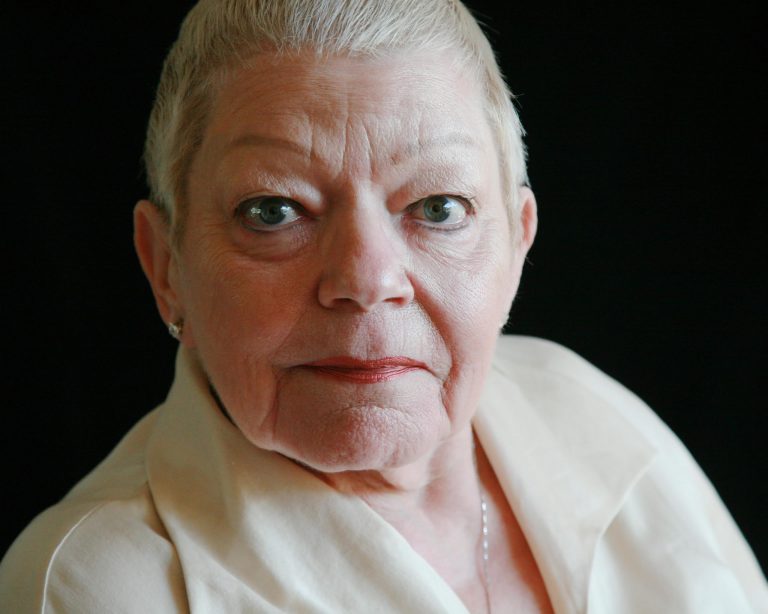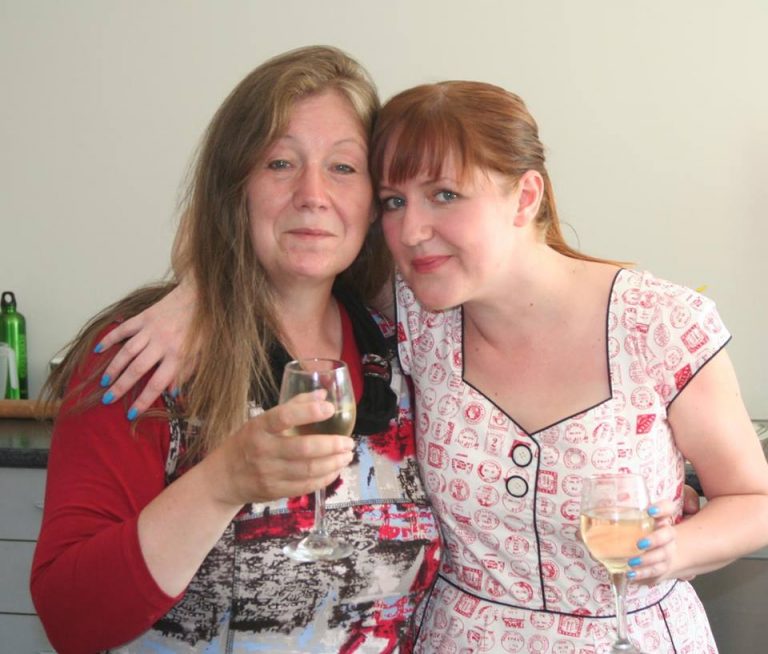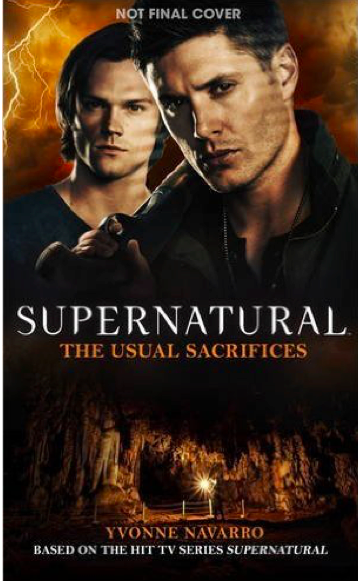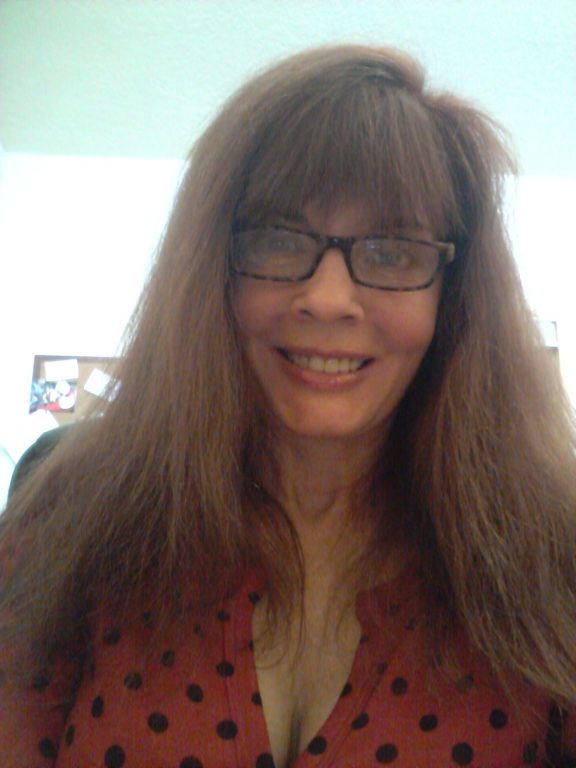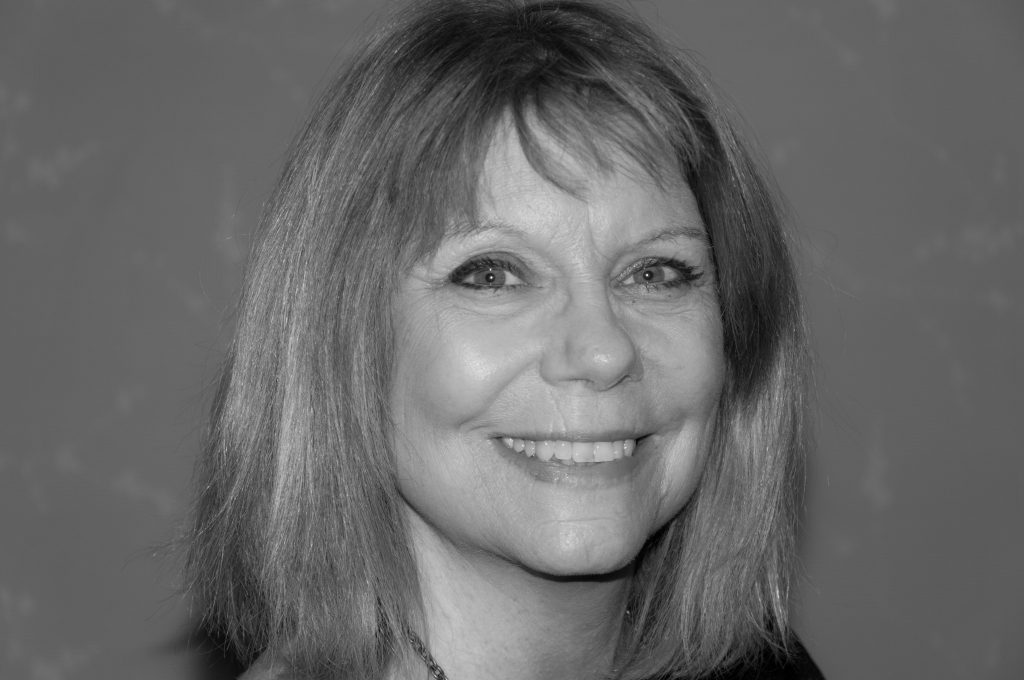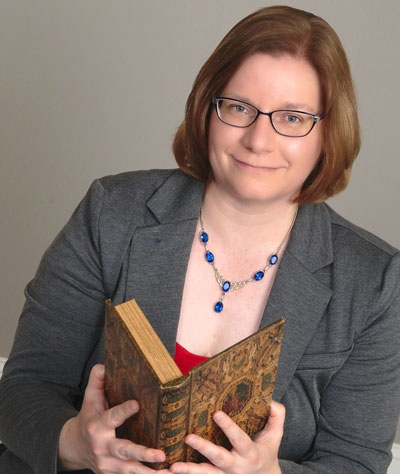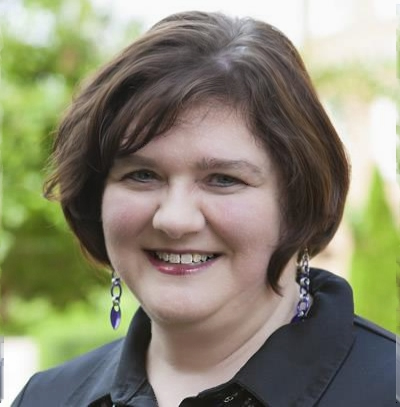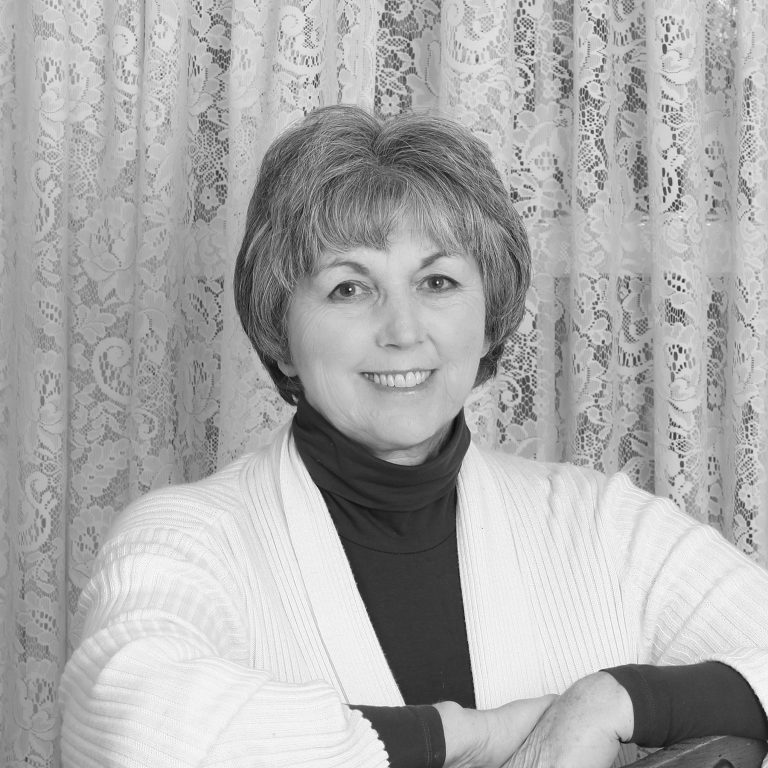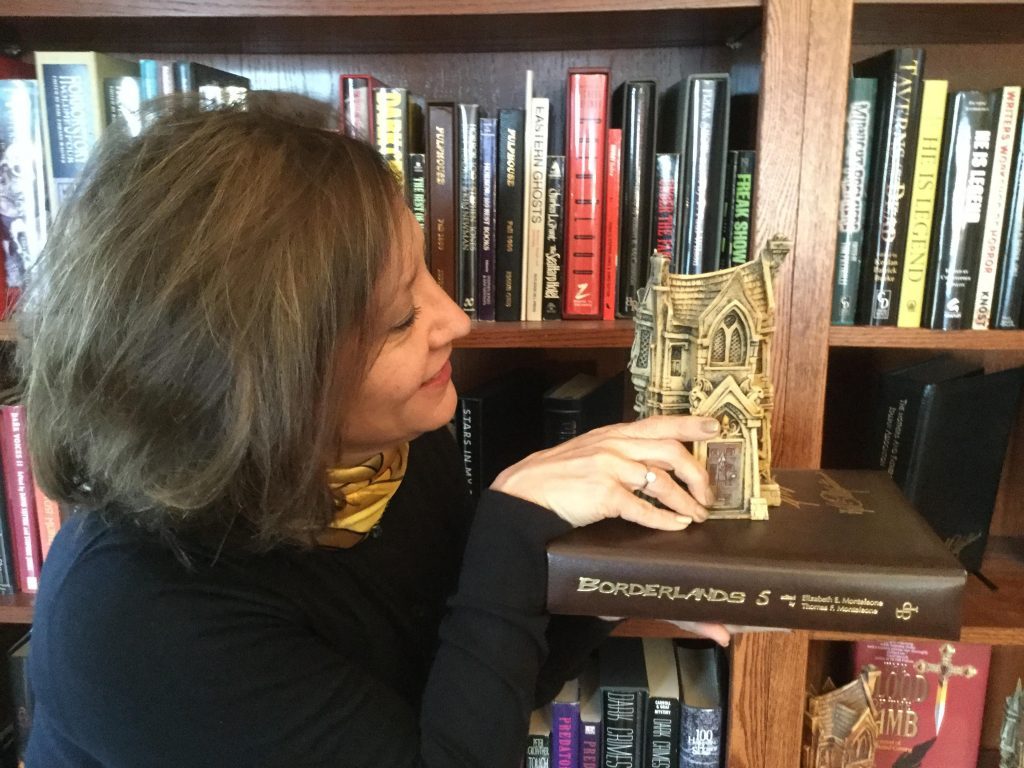(1) WRITERS STRIKE: MORE THOUGHTS ON AI. Justine Bateman tweeted this warning for SAG-AFTRA members:
(2) FREE HWA AI WEBINAR. The Horror Writers Association will host a free webinar on May 15 about what AI means for the future of writing and publishing to help writers understand the facts and realities of what AI does and what it might accomplish in the future. Register here: “Artificial Intelligence and Writing — What AI Means for the Future of Fiction Writing and Publishing”. James Chambers will be leading the panel, joined by Colleen Anderson, CW Briar, R Leigh Hennig, Matthew Kressel, John Edward Lawson, Angela Yuriko Smith, and Leonard Speiser.
AI and WRITING PANEL UPDATE: Greetings! This Monday, May 15, at 8 p.m. ET, the HWA’s Horror University Online program will sponsor a FREE panel discussion about Artificial Intelligence and Writing. This panel is open to all. You don’t have to be an HWA member to attend.
I’ll be leading a group of seven people who bring a wide range of experience and knowledge as authors, editors, organizers in the horror community, publishers, and technology experts to this conversation. We will discuss what artificial intelligence is, how it works, its limitations, how it might change, and how it might affect writing and publishing. Our goal for the discussion is to provide information and insight for writers, editors, and publishers as a springboard for further conversation and understanding and to help them navigate evolving technology so that it does not ever diminish the work of human writers.
The genesis of this panel came a few months back when I heard a lot of chatter online, in the news, and in my writing groups about AI and what this technology means for writers. The sincere anxiety and uncertainty expressed in those conversations made me think the HWA’s Horror University Online could be a good platform to open a fact-based conversation to address these very real concerns and help people wrap their heads around it.
Likewise, I thought, it would be a good forum in which to discuss what the future might hold because, whether we like it or not, we must now work in a world where AI exists. How can human writers, editors, and publishers avoid AI pitfalls? What should we expect on the business side of our industry, such as changes to contract language, submission guidelines, and so on? What are elements of AI we must watch most closely to protect what we do as writers, editors, and publishers? These are just some of the things our panel will discuss.
Among of the core missions of the HWA and Horror University are to support writers, help them develop and improve, help them succeed, share knowledge, and build community. This panel is aligned with those goals. I encourage everyone interested to register at the link below. We will be taking questions during the panel. Even if you can’t attend the live session, you may access the recording.
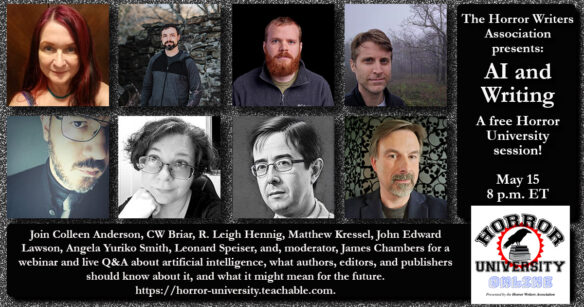
(3) FIYAH GRANTS. FIYAH Literary Magazine is taking applications for its Grants. Full details at the link.
The FIYAH Literary Magazine Grant Series is intended to assist Black writers of speculative fiction in defraying costs associated with honing their craft.
The series includes three $1,000 grants to be distributed annually based on a set of submission requirements. All grants with the exception of the Emergency Grant will be issued and awarded as part of Juneteenth every year. The emergency grant will be awarded twice a year in $500 amounts.
(4) NAVARRO SHARES EXPERIENCES. The Horror Writers Association continues its thematic Q&A series: “Celebrating Our Elders: Interview with Yvonne Navarro”.
Do you think you’ve encountered ageism? If so, how do you counteract or deal with it?
Yes, I do. Thanks to self-publishing, younger authors will accept a shamefully lower amount of money for books while older, experienced authors still want to be decently paid for their work. Recently, a younger writer with less experience in a certain media tie-in universe in which I have worked extensively was chosen over me for a project. Unless someone has a mystical wand, I don’t see any way to fight this
(5) ABOUT PTSD. Francis Hamit says, “This is the best, most comprehensive article about PTSD I have ever read: This is a condition that I’ve suffered from most of my life and, based upon observation I think that many people in Fandom are also afflicted. Others in Fandom are unkind and go out of their way to make PTSD worse.” “Understanding PTSD in Security Professionals: Unveiling the Impact and Effective Approaches for Support and Recovery” at Security Guards.
PTSD Post-Traumatic Stress Disorder (PTSD) is a mental health condition that can develop in individuals who have experienced or witnessed a traumatic event. It is a complex disorder that affects the mind and body, causing significant distress and impairing daily functioning. In this article, we will explore the key aspects of PTSD, including its causes, symptoms, diagnosis, and treatment options….
(6) THE HOLE TRUTH. At Speculiction, Jesse Hudson is ready to send for the coroner: “Tailspin: The Decline of Hulu’s The Handmaid’s Tale Series”.
…A lot of shows have plot holes, and The Handmaid’s Tale is no exception. I will not go into detail here. But I will say that they are coming faster and with more frequency. Where Atwood’s novel (aka Season 1) is a tightly wound tale in a finite setting whose pieces fit nicely together, each subsequent season frays this rope. Where characters once acted and behaved according to the personalities Atwood established, they begin to deviate in ways that seem more plot-serving than character-oriented. The show’s writers need to get Person A from point 1 to 2, so they introduce situation X, a situation that goes beyond the limits of the world already established (i.e. plot hole). Or they introduce decision point Y, which keeps the wheels of plot moving but don’t seem true to character or setting. I read a shit-ton of books. I am a forgiving person in plot-hole land. But the series has become too much. It has lost touch with the ground it grew from and now floats in the sky above, the ground only in sight. Nothing is interesting when everything is possible…
(7) MEMORY LANE.
1984 – [Compiled by Cat Eldridge.]
This novel was published by Bantam the same year R.A. MacAvoy won the Astounding Award for Best New Writer. I’m very fond of her as she would write The Black Dragon series, Tea with the Black Dragon and Twisting the Rope.
Our Beginning this Scroll is from the first novel of the Damiano series and it too is called Damiano. It was published by Bantam Books in 1984 with the cover illustration by Jim Burns.
It is a fantastic series and the Beginning which follows gives you a taste of what this novel and the series as a whole is like. So let’s get started…
A string buzzed against his fingernail; the finger itself slipped, and the beat was lost. Damiano muttered something that was a bit profane.
“The problem isn’t in your hand at all. It’s here,” said Damiano’s teacher, and he laid his ivory hand on the young man’s right shoulder. Damiano turned his head in surprise, his coarse black ringlets trailing over the fair skin of that hand. He shifted within his winter robe, which was colored like a tarnished brass coin and heavy as coins. The color suited Damiano, whose complexion was rather more warm than fair.
“My shoulder is tight?” Damiano asked, knowing the answer already. He sighed and let his arm relax. His fingers slid limply across the yew-wood face of the liuto that lay propped on his right thigh. The sleeve of the robe, much longer than his arm and banded in scarlet, toppled over his wrist. He flipped the cloth up with a practiced, unconscious movement that also managed to toss his tangle of hair back from his face. Damiano’s hand, arm, and shoulder were slim and loosely jointed, as was the rest of him.
“Again?” he continued. “I thought I had overcome that tightness months ago.” His eyes and eyelashes were as soft and black as the woolen mourning cloth that half the women of the town wore, and his eyes grew even blacker in his discouragement. He sighed once more.
Raphael’s grip on the youth tightened. He shook him gently, laughing, and drew Damiano against him. “You did. And you will overcome it again and again. As many times as it crops up. As long as you play the instrument. As long as you wear flesh.”
Damiano glanced up. “As long as I … Well, in that case may I fight my problem a good hundred years! Is that why you never make mistakes, Seraph? No flesh?” His toothy smile apologized for the witticism even as he spoke it. Without waiting for an answer, he dropped his eyes to the liuto and began to play, first the treble line of the dance, then the bass line, then both together.
Raphael listened, his eyes quiet, blue as lapis. His hand still lay on Damiano’s shoulder, encouraging him. Raphael’s great glistening wings twitched slightly with the beat of the music. They caught the cloudy daylight and sent pearly glints against the tiles of the wall.
Damiano played again, this time with authority, and smoothly passed the place where he had to change the meter—two strokes, very fast, plucked by the middle finger. When he was done, he looked up, his face flushed with success, his lower lip red because he’d been biting down on it.
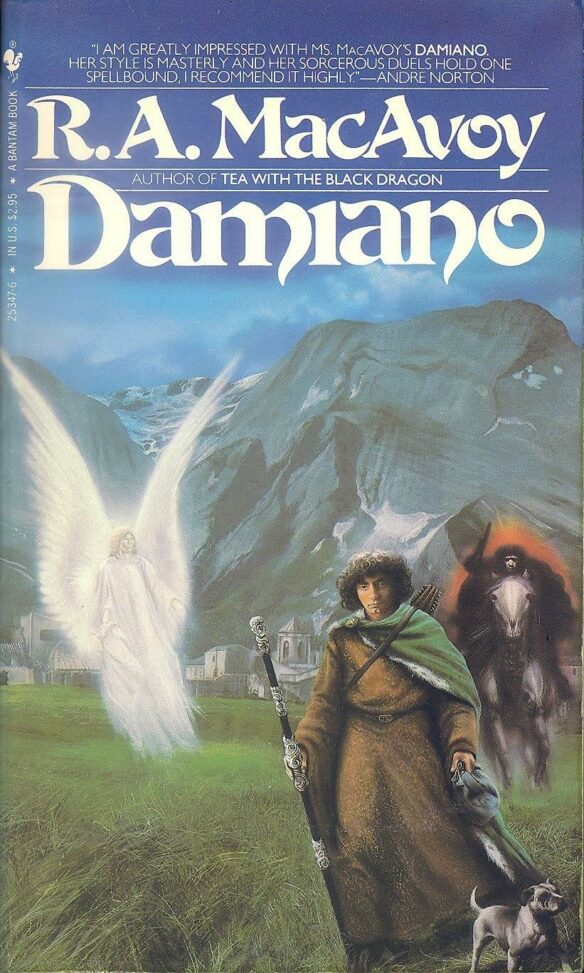
(8) TODAY’S BIRTHDAYS.
[Compiled by Cat Eldridge.]
- Born May 15, 1856 — L. Frank Baum. I adore The Wizard of Oz film and I’m betting you know that it only covers about half of the novel which is a very splendid read indeed. I’ll confess that I never read the numerous latter volumes in the Oz franchise, nor have I read anything else by him. Nor have I seen any of the later adaptations of the Oz fiction. What’s the rest of his fiction like? There is, by the way, an amazing amount of fanfic out here involving Oz and some of it is slash which is a really, really scary idea. (Died 1919.)
- Born May 15, 1877 — William Bowen. His most notable work was The Old Tobacco Shop, a fantasy novel that was one runner-up for the inaugural Newbery Medal in 1922. He also had a long running children’s series with a young girl named Merrimeg whom a narrator told her adventures with all sorts of folkloric beings. (Died 1937.)
- Born May 15, 1926 — Anthony Shaffer. His genre screenplays were Alfred Hitchcock’s Frenzy and Robin Hardy’s The Wicker Man. Though definitely not genre, he wrote the screenplays for a number of most excellent mysteries including the Agatha Christie-based Evil Under the Sun, Death on the Nile, and Murder on the Orient Express. (Died 2001.)
- Born May 15, 1948 — Brian Eno, 75. Worth noting if only for A Multimedia Album Based on the Complete Text of Robert Sheckley’s In a Land of Clear Colors, though all of his albums have a vague SF feeling to them such as Music for Civic Recovery Centre, January 07003: Bell Studies for the Clock of The Long Now and Everything That Happens Will Happen Today which could the name of Culture mind ships. Huh. I wonder if his music will show up in the forthcoming Culture series?
- Born May 15, 1955 — Lee Horsley, 68. A performer who’s spent a lot of his career in genre undertakings starting with The Sword and the Sorcerer (and its 2010 sequel Tales of an Ancient Empire), horror films Nightmare Man, The Corpse Had a Familiar Face and Dismembered and even a bit of SF in Showdown at Area 51. Not sure where The Face of Fear falls as it has a cop with psychic powers and a serial killer.
- Born May 15, 1966 — Greg Wise, 57. I’m including him solely for being in Tristram Shandy: A Cock and Bull Story. It is a film-within-a-film, featuring Steve Coogan and Rob Brydon playing themselves as egotistical actors during the making of a screen adaptation of Laurence Sterne’s 18th century metafictional novel Tristram Shandy. Not genre (maybe) but damn fun.
- Born May 15, 1971 — Samantha Hunt, 52. If you read nothing else by her, do read The Invention of Everything, a might be look at the last days in the life of Nikola Tesla. It’s mostly set within the New Yorker Hotel, a great concept. I’m avoiding spoilers naturally. She’s written two other genre novels, Mr. Splitfoot and The Seas, plus a handful of stories.
(9) COMICS SECTION.
- Popeye has a portal fantasy adventure.
- Loose Parts finds out something about the University of Transylvania.
- The Argyle Sweater has a very wacky Doc Brown movie gag.
(10) MAKES YOU WONDER. “Wonder Woman’s daughter Trinity arrives in upcoming DC comic” reports Entertainment Weekly. Yeah, I’m sure you’re asking that question, too, but the article doesn’t answer it.
Wonder Woman has been a superhero, a feminist icon, and a movie star over the decades, but this year she’s going to add another title to her resume: mother.
IGN revealed on Friday that DC Comics is introducing Trinity, Wonder Woman’s daughter, in the upcoming anniversary issue Wonder Woman #800. She was created by writer Tom King and artist Daniel Sampere, who are taking over the monthly Wonder Woman comic when it relaunches with a new issue #1 this September….
(11) IT WILL TAKE YOU BY SURPRISE. Jennifer Hawthorne encourages everyone to check out this “super-cool space-themed art.” It lives up to her billing! “Astronaut sculpture from an ex-physicist” at Reddit.
(12) CSSF VIRTUAL BOOK CLUB CHOICE. The Gunn Center for the Study of Science Fiction has announced their final Virtual Book Club Event of the academic year. To join them Friday, May 19 at noon (Central) for a virtual meeting, register here.
For the month of May, the Center has chosen short story, “We Travel the Spaceways” by Victor LaValle.
Otherworldly interference in real world New York City? Or delusions? For the answer, follow two strangers in an astonishing short story of faith and hope. Grimace is a homeless man on a holy mission to free Black Americans from emotional slavery. His empty soda cans told him as much. Then he meets Kim, a transgender runaway who joins Grimace on his heroic quest. Is Grimace receiving aluminum missives from the gods, or is he a madman? Kim will find out soon enough on a strange journey they are destined to share. Available for free with Amazon Prime account.
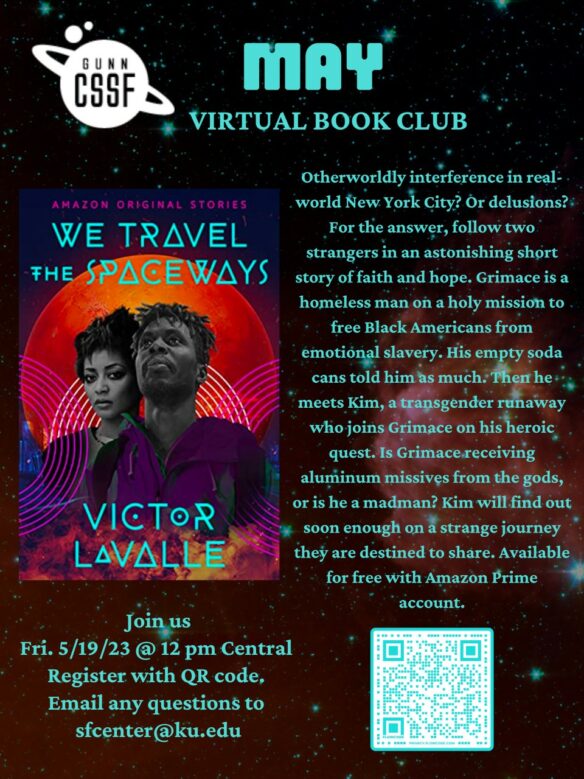
(13) ALTERNATE MCU. CinemaBlend eavesdrops on his commencement address at USC where “Kevin Feige Talks Forks In Life And How Robert Downey Jr. Only Landed The Iron Man Role After Marvel’s ‘Top Choice’ Passed”.
The Marvel Cinematic Universe is, in great, the powerhouse that it is today due to the efforts of studio head Kevin Feige and the countless individuals who work at Marvel Studios. Of course, an actor by the name of Robert Downey Jr. deserves some credit as well, as his debut performance as Tony Stark in 2008’s Iron Man helped to propel the film to box office success. After all these years, it’s honestly hard to imagine anyone else playing the role of the mustachioed hero except for Downey. Believe it or not though, he wasn’t the studio’s “top choice” for Stark, as the other name they had in mind passed. Feige recently recalled that situation while discussing forks in life and more during a recent speech….
Oscar nominee Clive Owen is certainly a gifted actor and could’ve been an interesting choice for Tony Stark. Entertainment enthusiasts probably know him best from his performances in Closer, Close My Eyes, Sin City and more. While the notion of him playing the character is intriguing, I don’t think he could’ve brought Tony Stark the way that Robert Downey Jr. did….
… “And that is the unwritten rule of luck – not getting your first choice might just be the greatest thing that can happen. Because you know what’s better than getting your first choice, getting the right choice. In our case, of course, that was Robert Downey Jr., and the first movie we ever made as a studio ended up being one of the best reviewed and highest grossing movies of the year.”
(14) VIDEO OF THE DAY. [Item by SF Concatenation’s Jonathan Cowie.] This month’s Sci-Fi Sunday over at Isaac Arthur’s Futures YouTube channel is on “Hive Worlds”.
Science fiction often shows us dark, grimy, dystopian mega-cities in the future, but are such planet-wide cities possible, what would they be like, and how many people could they hold?
[Thanks to Michael Toman, SF Concatenation’s Jonathan Cowie, Cat Eldridge, Daniel Dern, Jennifer Hawthorne, Francis Hamit, Mike Kennedy, Andrew Porter, John King Tarpinian, and Chris Barkley for some of these stories. Title credit belongs to File 770 contributing editor of the day Randall M.]

